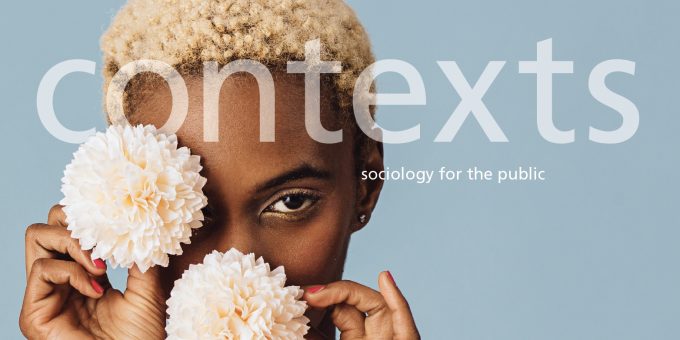
- “Fire Flight,” Parker Muzzerall
- “Listing Addiction on Your Resume,” Elena G. Van Stee
- “Defining Discrimination Changes Policy Preferences,” Parker Muzzerall
- “Financial Theatrics,” Elena G. Van Stee
- “Good Lawyer, Bad Lawyer,” Elena G. Van Stee
- “Aging with Imagination,” Colter J. Uscola
- “Parental Profiteering,” Colter J. Uscola
- “Medicalizing Maternity,” Colter J. Uscola
q&a:
special section:
- “The War on Woke—and What It Means,” by Amin Ghaziani, Seth Abrutyn, Shelley J. Correll, Adina D. Sterling, Adia Harvey Wingfield, Jessica R. Gold, Laura K. Nelson, and Kathrin Zippel. A curated collection of essays underscoring what we lose by abandoning efforts toward diversity, equity, and inclusion, this special section considers DEI program successes across business, healthcare, and academia.
features:
- “Is Asexuality Queer?” by Canton Winer. Asexuality may put the A in LGBTQIA+, yet its place in the broader queer community is often called into question. Extending sexualities research to consider queer gatekeeping allows us to understand queerness as a resource—and to reimagine just how much room there is under the rainbow.
- “Beyond Sacrifice Zones: Rethinking Pollution through a Cumulative Impact Lens,” by Maria Akchurin and Juanita Vivas Bastidas. In Chicago’s environmental sacrifice zones, activists and residents are rethinking pollution through a cumulative impact lens to capture the multiple, overlapping harms affecting so-called fenceline communities, organize resistance, and make remediation demands.
- “How Your Doctor’s Debt Matters,” by William Burr, Judson Everitt, James Johnson, and Lillian Wynne Platten. The country faces a shortage of healthcare professionals, yet today’s average U.S. medical school graduate carries an enormous debt burden. With roughly $200,000 in education loans, interviewees explain, exciting decisions about specialty paths become struggles between passion and pragmatism.
- “Conservatorships: Coercion without Care or Control,” by Alex V. Barnard. Disability rights groups fight against them and politicians seek to expand their use: a close look at policy and practice in California reveals the pitfalls of legal conservatorships for the parents, families, and community providers who need real help, not just blunt instruments.